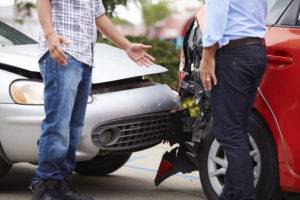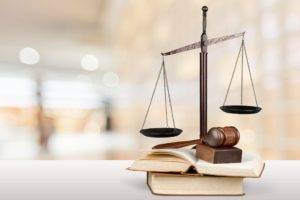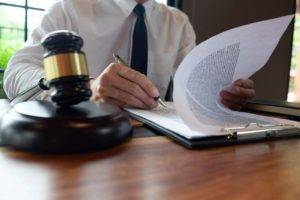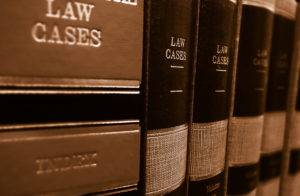You cannot lose your house due to an at-fault car accident in Florida. Florida’s homestead exemption law prevents this from happening.
It protects you even if you lose a car accident claim or lawsuit. Even if you cause a car accident through reckless driving, the homestead exemption law allows you to keep your home. Retaining an attorney can give you peace of mind after an accident.
Florida’s Asset Protection Laws
Florida has asset protection laws. It’s important to understand the homestead exemption, its limitations and other protected assets.
Homestead Exemption
The Florida homestead exemption provides tax breaks to homeowners based on the value of their property. According to Florida Statute 196.031, it allows you to reduce your home’s tax value up to $25,000 when using that property as your primary residence.
Limitations of the Homestead Exemption
The homestead exemption has certain limitations based on the size of your property. If the home is your primary residence, it can be protected within an area of up to half an acre or outside a municipality of up to 160 acres.
Other Protected Assets in Florida
In addition to your home, other assets are protected in Florida. Some examples include annuities, business entities, cars, college tuition, disability income, insurance, irrevocable trusts, retirement accounts and social security.
Need free legal help in Florida?
We specialize in personal injury claims.

Potential Risks to Your Home After an At-Fault Accident in Florida
In Florida, there are potential risks to your home after an at-fault accident. This includes lawsuits exceeding insurance coverage, judgments and liens and bankruptcy considerations.
Lawsuits Exceeding Insurance Coverage
Car insurance policies have limits. This allows an injured victim to file a lawsuit if coverage isn’t enough to compensate their remaining damages. However, Florida’s homestead exemption protects your primary residence regardless of the judgment. This means the victim may not recover all the compensation the court ordered.
Judgments and Liens
Because of the homestead exemption, judgments and liens from an at-fault accident cannot affect your primary residence in Florida. However, if you have another home, you might be ordered to sell it to satisfy those costs.
Bankruptcy Considerations
Your home cannot be taken if you file for bankruptcy in Florida. The homestead exemption protects you regardless of the value of your house.
Strategies to Protect Your Home in Florida
There are various strategies to protect your home in Florida. They include adequate auto insurance coverage, umbrella insurance policies and asset protection trusts.
Adequate Auto Insurance Coverage
Adequate auto insurance coverage can protect your Florida home in the event of an at-fault car accident. According to Florida Statute 627.736, drivers must carry $10,000 in personal injury protection (PIP) coverage and property damage liability (PDL), respectively. However, adding collision and comprehensive, bodily injury liability and uninsured/underinsured coverage can further safeguard your home.
Umbrella Insurance Policies
Umbrella insurance policies can protect your home when you’re at fault for a car accident. It covers various damages and even lawsuits. When your auto insurance coverage isn’t enough to pay for damages, umbrella insurance can pick up the difference.
Asset Protection Trusts
An asset protection trust can shield your estate, including your home. If you’re responsible for a car accident, you don’t have to worry about losing your house if you place it in the trust.
Legal Options if Sued for More Than Your Insurance Covers in Florida
In Florida, you have options if you’re sued for more than your insurance covers. Examples include negotiating with the plaintiff, payment plans and settlements and bankruptcy as a last resort.
Negotiating with the Plaintiff
Although not always successful, you can try negotiating with the plaintiff. This is more effective when you have a lawyer on your side. Sometimes, a plaintiff agrees to settle for less money.
Payment Plans and Settlements
Some injured victims are willing to accept payment plans from defendants who can’t afford to pay in full. Your attorney can mitigate the situation and explore potential options.
Bankruptcy as a Last Resort
Finally, bankruptcy might be best if your insurance can’t compensate the plaintiff. This option should only be used as a last resort.
Need free legal help in Florida?
We specialize in personal injury claims.

Understanding Florida’s Car Accident Laws
It’s crucial to understand Florida’s car accident laws. It runs on a no-fault insurance system and requires PIP. Bodily injury liability (BIL) coverage is also recommended.
Florida’s No-Fault Insurance System
According to Florida Statute 627.7407, the no-fault insurance system requires drivers to go through their own policies to cover damages from accidents. This law was revived and amended in 2008.
Personal Injury Protection (PIP) Coverage
PIP covers necessary medical expenses up to 80%. All drivers must have $10,000 in coverage.
Bodily Injury Liability Coverage
Bodily injury liability (BIL) insurance is not mandatory for Florida drivers. However, according to Florida Statute 324.023, those with a history of car accidents caused by serious traffic violations resulting in bodily injury or death must have coverage.
Steps to Take Immediately After an At-Fault Accident in Florida
There are immediate steps to take after an at-fault accident in Florida. They include contacting your insurance company, seeking legal advice and documenting the accident and your assets.
Contacting Your Insurance Company
Contact your insurance company and explain that you’ve had an accident. Don’t answer any questions, but give basic information.
Seeking Legal Advice
Consult with an attorney for legal advice. They can explain how your case should be handled.
Documenting the Accident and Your Assets
Document the specifics of the accident. Include photos, videos and a copy of the police accident report. Note your assets in case the plaintiff sues you for more than your insurance coverage.
Frequently Asked Questions
What Happens if You Are at Fault in a Car Accident in Florida?
If you’re at fault for a car accident, your car insurance compensates the victim for their damages. Depending on the circumstances, you can face a lawsuit, traffic citations, fines and a license suspension. Your auto insurance premiums might also increase.
Can You Lose Your House in a Personal Injury Lawsuit in Florida?
Florida’s homestead exemption prevents you from losing your house in a personal injury lawsuit.
Can Someone Sue Me Personally After a Car Accident in Florida?
A person cannot sue you personally after a car accident in Florida unless they suffer serious injuries.
Who Pays for Property Damage in Car Accident in Florida?
Your car insurance pays for property damage in a Florida car accident.
How Long Does an At-Fault Accident Affect Insurance in Florida?
In Florida, an at-fault accident can affect your insurance for three to five years.
Can They Take Your House if You Get Sued in Florida?
Even if you get sued, your house cannot be taken in Florida due to the homestead exemption.
How Do I Protect My House from a Lawsuit in Florida?
You can protect your house from a lawsuit in Florida through the homestead exemption, umbrella insurance or an asset protection trust.
Is Florida a No-Fault State for Car Accidents?
Florida is a no-fault state for car accidents.
What Is the 14-Day Accident Law in Florida?
The Florida 14-day accident law requires you to seek medical attention within 14 days after a car accident.
What Happens When Car Accident Claim Exceeds Insurance Limits in Florida?
If a car accident claim exceeds insurance limits in Florida, the victim can file a lawsuit against the at-fault party.
Need free legal help in Florida?
We specialize in personal injury claims.






